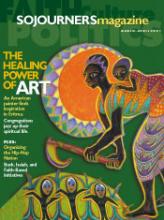Like many North American Christians, I had my spiritual journey upended in the 1980s by an encounter with poor believers from Latin America. The exposure to Christians from Nicaragua, El Salvador, and throughout Latin America whose faith flourished despite lives filled with aching poverty and violence revealed my own spiritual neediness. The theology of liberation that came out of Latin America and other places in the Third World helped to transform Christianity in North America and converted many of us from individualistic faith to spiritually based solidarity with the poor.
Pentecostalism and the Future of the Christian Churches, by American liberation theologian Richard Shaull and Brazilian sociologist Waldo Cesar, shows that despite the waning influence of liberation theology in recent years, Latin American Christians continue to offer the rest of the church lessons of critical importance, though perhaps not those we would expect.
This book is written in two parts. The first, by Cesar, offers a sociological look at pentecostalism in Brazil, focusing on the controversial Universal Church of the Reign of God. The second section provides a theological reflection by Shaull on pentecostalism and the impact of the movement on the poor.
Pentecostalism has rapidly become the church of the poor in Latin America. Shaull and Cesar find the reason for this in the brutal effects of globalization on the poor of Latin America in the last decade. Globalization has caused severe brokenness, not just in the social order but in the lives of individuals, and has forced the impoverished to seek what Shaull and Cesar call a complete "reconstruction of human life" at its most basic levels. Thoroughly disenchanted with the solutions offered by political movements, many poor people in Latin America found their only remaining hope in God.
Read the Full Article
